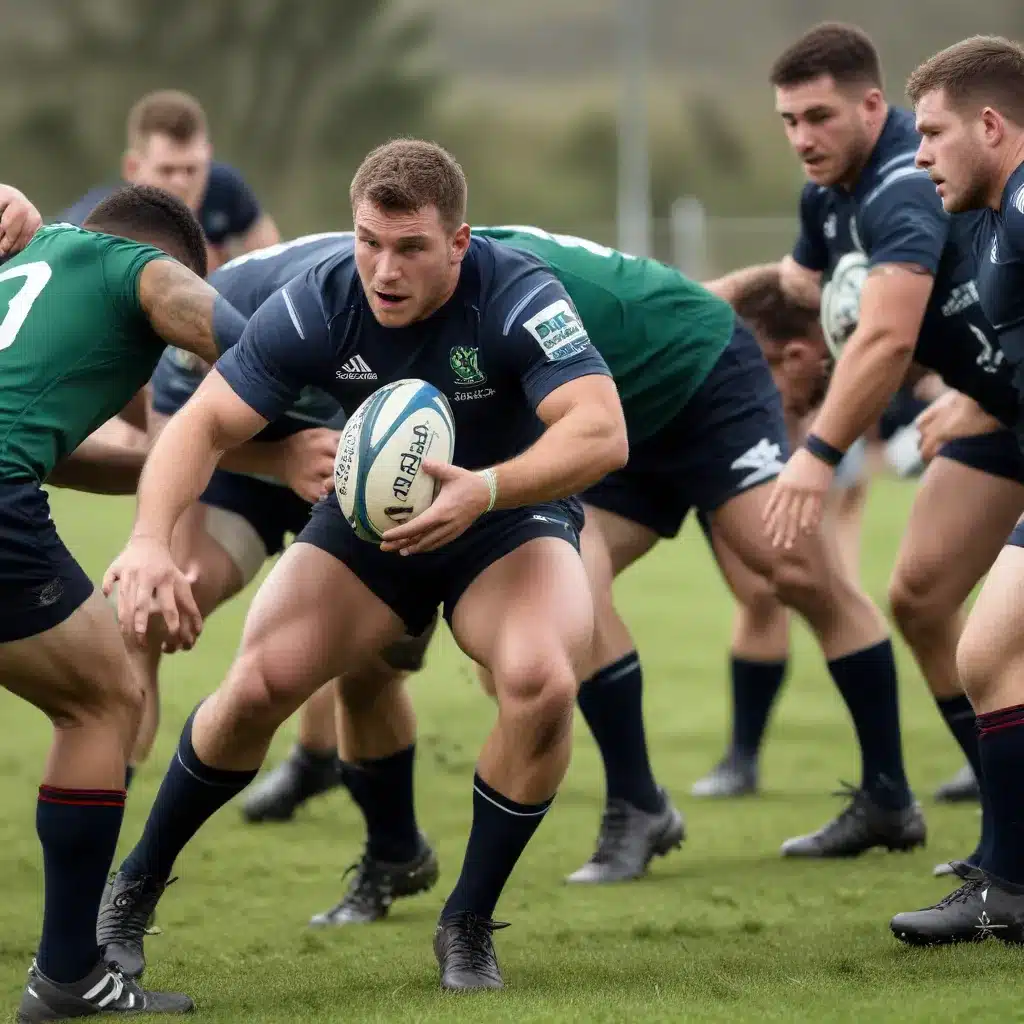
Hydration and Rugby Performance: The Key to Success
As a seasoned rugby professional, I know firsthand the crucial role that hydration plays in athletes’ performance, recovery, and overall well-being. Maintaining optimal fluid balance is essential for rugby players, who face the demands of intense training sessions, grueling matches, and the unique challenges of the sport.
Importance of Hydration in Rugby
Rugby is a physically demanding game that requires players to perform at their best for an extended period. Dehydration can have a significant impact on an athlete’s ability to perform at the highest level. When the body is dehydrated, it becomes more difficult to regulate body temperature, leading to a rise in core temperature. This can result in fatigue, muscle cramps, and decreased endurance.
Furthermore, dehydration can impair cognitive function, making it harder for players to make quick decisions, remember plays, and maintain focus during the match. This is particularly concerning in a sport like rugby, where split-second decisions and situational awareness are critical to success.
Proper hydration, on the other hand, can enhance physical and mental performance. Well-hydrated players will have better endurance, faster recovery times, and improved decision-making abilities. Staying hydrated can also help prevent injuries by maintaining muscle function and joint lubrication.
Electrolyte Balance for Rugby Players
Electrolytes, such as sodium, potassium, and chloride, play a crucial role in maintaining fluid balance and muscle function. During intense exercise, rugby players lose significant amounts of electrolytes through sweat, which can lead to an imbalance if not replenished.
Maintaining proper electrolyte levels is essential for optimal muscle contractions, nerve impulse transmission, and fluid regulation. Depletion of electrolytes can result in muscle cramps, fatigue, and even more severe conditions like heat exhaustion or heat stroke.
To ensure that rugby players maintain their electrolyte balance, it’s important to incorporate electrolyte-rich foods and beverages into their nutrition plan. Sports drinks, which contain a balance of carbohydrates, electrolytes, and sometimes added vitamins and minerals, can be a convenient way for players to replenish what they’ve lost during training or matches.
Hydration Strategies for Rugby Players
Effective hydration for rugby players involves a multi-faceted approach, taking into account the various stages of physical activity.
Pre-exercise Hydration:
It’s essential for rugby players to arrive at training or matches in a well-hydrated state. Consuming 500-700 ml of fluid a few hours before exercise can help ensure that the body has adequate fluid reserves to draw from during the activity.
Hydration during Exercise:
During training sessions and matches, rugby players should aim to consume 200-300 ml of fluid every 15-20 minutes to replace the fluids and electrolytes lost through sweat. Water and electrolyte-rich sports drinks are both effective options, with the latter providing the added benefit of replenishing carbohydrates for energy.
Post-exercise Rehydration:
After the physical demands of a rugby match or training session, players should focus on rehydrating and replenishing any lost fluids and electrolytes. Consuming a combination of water, electrolyte-rich beverages, and sodium-containing foods can help the body recover and prepare for the next session.
By implementing these hydration strategies, rugby players can maintain optimal fluid balance, improve their performance, and reduce the risk of heat-related illnesses and muscle cramps.
Nutrition for Optimal Rugby Performance
Proper nutrition is another critical component in supporting rugby players’ performance and recovery. A well-balanced diet that meets the sport’s unique demands can provide the energy, nutrients, and building blocks needed for success.
Macronutrient Needs for Rugby Players:
Rugby players have increased energy and macronutrient requirements compared to the general population. Carbohydrates should make up the majority of their daily caloric intake to fuel their high-intensity and prolonged physical activity. Protein is essential for muscle recovery and growth, while healthy fats provide energy and support various bodily functions.
Micronutrient Considerations:
In addition to macronutrients, rugby players need to ensure they are consuming adequate amounts of key micronutrients, such as vitamins and minerals. These nutrients support immune function, energy production, and overall health, which are all crucial for optimal rugby performance.
Timing of Nutrient Intake:
The timing of nutrient intake is also important for rugby players. Pre-exercise fueling, intra-exercise nutrition, and post-exercise recovery nutrition can all contribute to improved performance, enhanced recovery, and better overall health.
Supplementation Strategies for Rugby Players
While a well-balanced diet should be the foundation of a rugby player’s nutrition plan, supplements can also play a role in supporting performance and recovery.
Performance-enhancing Supplements:
Supplements like creatine, caffeine, and beta-alanine have been shown to improve various aspects of athletic performance, such as power output, endurance, and cognitive function. However, it’s essential to consult with a qualified sports nutritionist or dietitian to ensure the safe and effective use of these supplements.
Recovery-focused Supplements:
Protein supplements, anti-inflammatory compounds, and probiotics can aid in the recovery process, helping rugby players bounce back faster from the physical demands of the sport. These supplements can be particularly beneficial for players who may struggle to meet their increased nutrient needs through diet alone.
Hydration and Nutrition: The Complete Package for Rugby Success
In the fast-paced, physically demanding world of rugby, maintaining optimal hydration and proper nutrition are essential for players to perform at their best, recover effectively, and stay healthy throughout the season. By implementing comprehensive hydration strategies, ensuring adequate electrolyte balance, and fueling the body with a balanced diet and targeted supplements, rugby players can unlock their full potential and lead their teams to victory.
As a seasoned rugby professional, I encourage all players, coaches, and clubs to prioritize hydration and nutrition as key pillars of their overall performance and wellness strategy. At Aberdeenshire RFC, we understand the importance of these factors and work diligently to educate our players and support their holistic development. By working together, we can elevate the game and inspire the next generation of rugby champions.
